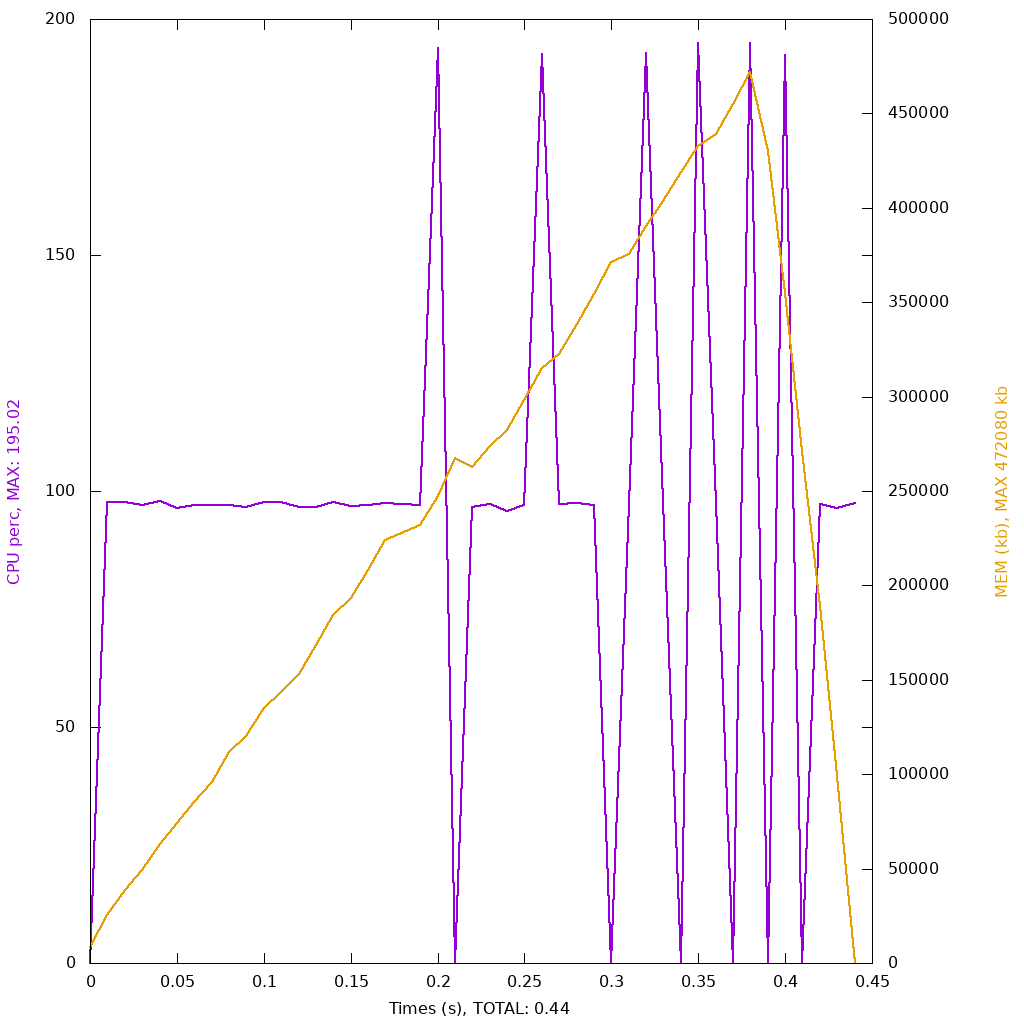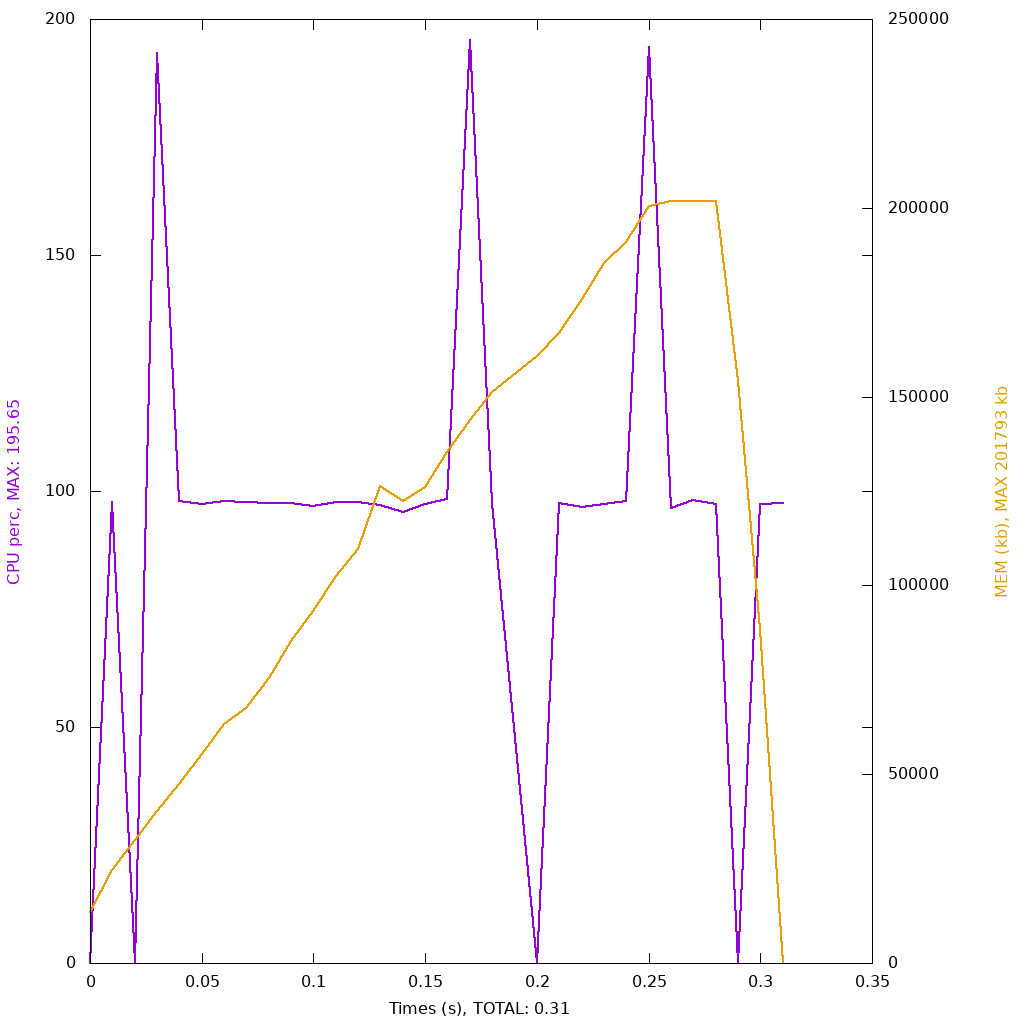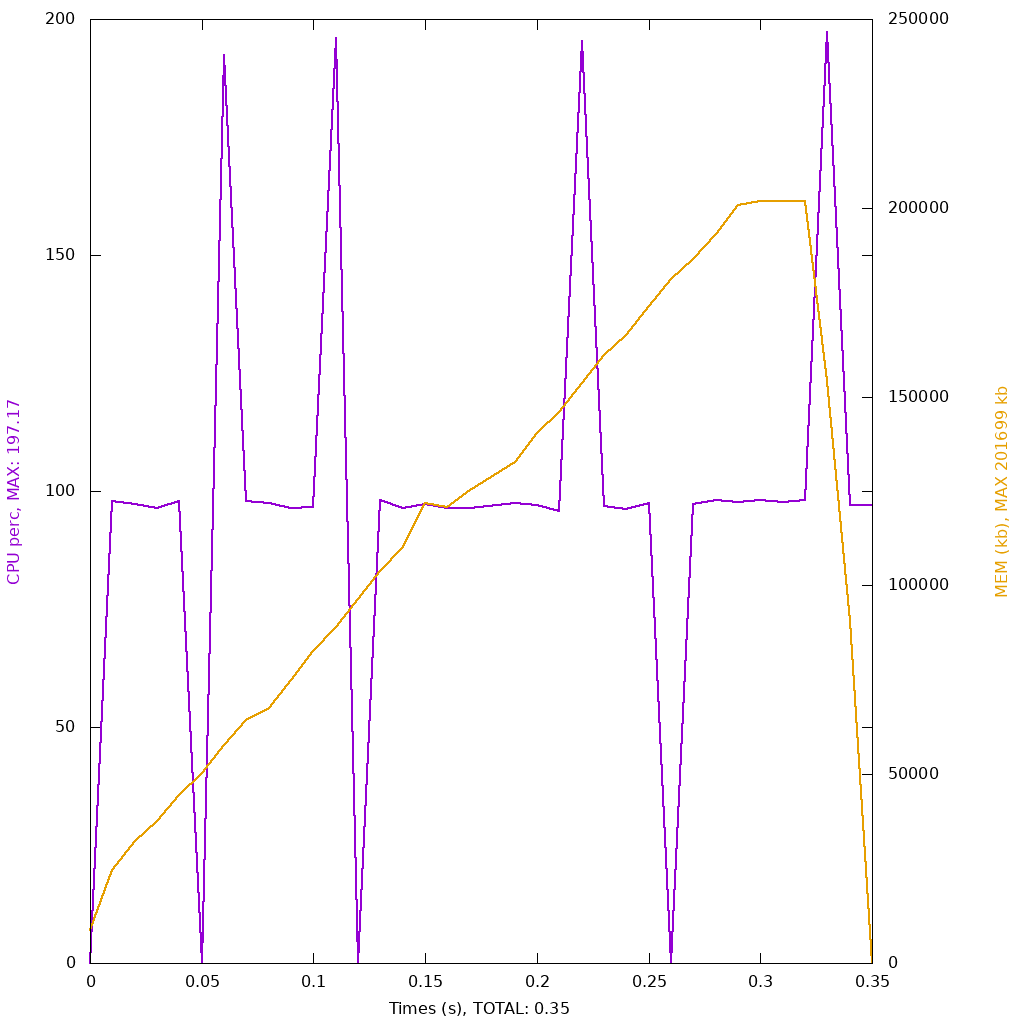php-performance-experiments
Objects vs arrays
NOTE: This test runs its own set of iterations and is not using the number from the make file.
It would run out of memory pretty quickly with that amount of iterations.
Explanation
To identify if a php object is more or less memory heavy than an array.
To do this we make a small function.
We instantiate a array or object, take a specific value from it and assign it to another part of the object or array.
Then we return that and assign it to $$i to keep it in memory for all the iterations.
Array

<?php
function test()
{
// Instantiate.
$array = [];
$array['variableA'] = 'String A';
$array['variableB'] = 12345;
$array['variableC'] = 'String B';
// Act on it.
$array['variableA'] = $array['variableC'];
$array['variableC'] = "Some new value";
return $array;
}
$iterations = 1000000;
for ($i = 0; $i < $iterations; $i++) {
$$i = test();
}
Objects

<?php
class MyStruct
{
public $variableA;
public $variableB;
public $variableC;
public function __construct($variableA, $variableB, $variableC)
{
$this->variableA = $variableA;
$this->variableB = $variableB;
$this->variableC = $variableC;
}
}
function test()
{
// Instantiate.
$object = new MyStruct('String A', 12345, 'String B');
// Act on it.
$object->variableA = $object->variableC;
$object->variableC = "Some new value";
return $object;
}
$iterations = 1000000;
for ($i = 0; $i < $iterations; $i++) {
$$i = test();
}
Objects type hinted

<?php
class MyStruct
{
public string $variableA;
public int $variableB;
public string $variableC;
public function __construct(string $variableA, int $variableB, string $variableC)
{
$this->variableA = $variableA;
$this->variableB = $variableB;
$this->variableC = $variableC;
}
}
function test(): MyStruct
{
// Instantiate.
$object = new MyStruct('String A', 12345, 'String B');
// Act on it.
$object->variableA = $object->variableC;
$object->variableC = "Some new value";
return $object;
}
$iterations = 1000000;
for ($i = 0; $i < $iterations; $i++) {
$$i = test();
}